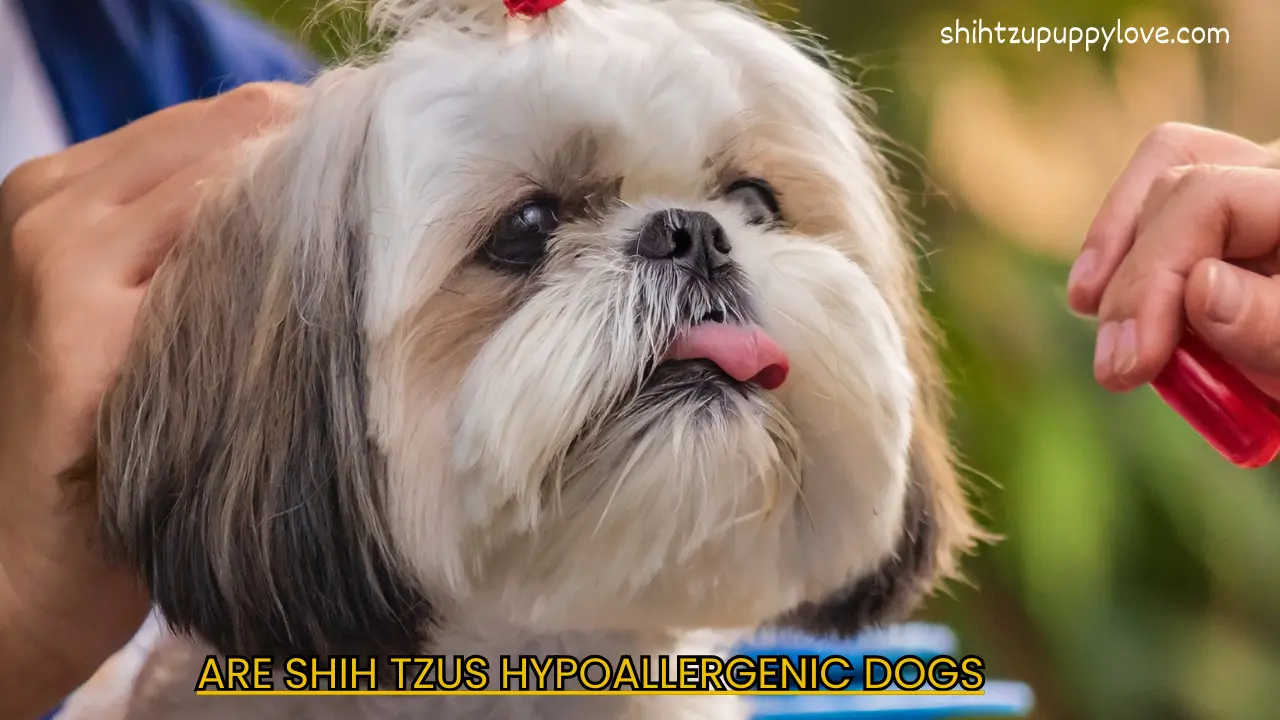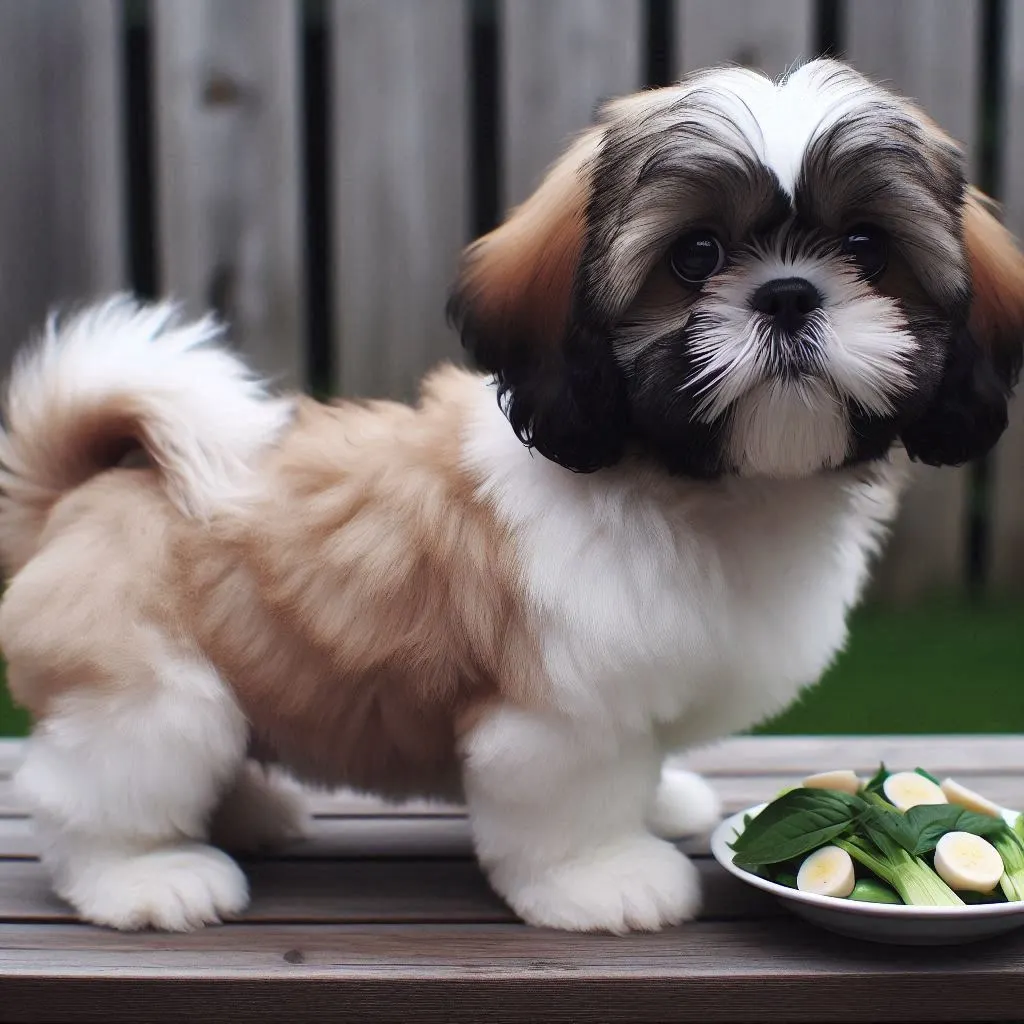Are shih tzus hypoallergenic dogs
What does it mean for a dog to be hypoallergenic?
The concept of hypoallergenic dogs
When we talk about hypoallergenic dogs, we refer to breeds that are less likely to cause allergic reactions in people sensitive to pet allergens. While no dog breed is completely hypoallergenic, certain breeds produce fewer allergens than others. These breeds are often deemed suitable for individuals with allergies or asthma.
A protein in a dog’s dander, saliva, and urine is the primary allergen that triggers human reactions. Hypoallergenic dogs typically produce lower amounts of this protein, making them a better option for those who suffer from allergies.

Factors that contribute to hypoallergic reactions
Several factors contribute to the hypoallergenic nature of certain dog breeds. These factors include:
- Low-shedding coats: Hypoallergenic dogs tend to have hair rather than fur, which reduces the amount of dander released into the environment. Additionally, their coats often grow continuously rather than shedding seasonally.
- Minimal saliva: Some breeds produce less saliva, reducing the amount of allergens in their saliva.
- Low dander production: Dander, which consists of tiny skin particles, is a common allergen. Hypoallergenic breeds tend to produce less dander, decreasing the likelihood of allergic reactions.
- Reduced urine allergens: While urine is not a primary contributor to allergies, some hypoallergenic breeds have lower levels of allergens in their urine, further minimizing potential reactions.
It’s important to note that individual reactions to allergens can vary. While hypoallergenic dogs may be a better choice for individuals with allergies, spending time with the specific breed is crucial to assess your response before bringing one into your home.
Understanding Shih Tzus as a breed
Characteristics and temperament of Shih Tzus
Shih Tzus are small, friendly, and affectionate dogs known for their distinctive appearance and adorable demeanor. They have a sturdy and compact build, with a long, flowing coat that requires regular grooming. The coat comes in various colors: white, black, gold, and combinations. Shih Tzus has a distinctive face, wide-set eyes, a short muzzle, and a sweet expression that often melts hearts.
Regarding temperament, Shih Tzus are known for being loyal, playful, and loving companions. They thrive on human interaction and enjoy being the center of attention. Shih Tzus are generally social dogs and get along well with children and other pets when properly socialized. They have a gentle nature and are less likely to show aggression. Furthermore, their adaptability makes them well-suited for both small apartments and larger homes.

Origins and History of Shih Tzus
Shih Tzus has a rich and ancient history that traces back to ancient China. They were initially bred to be companion dogs for Chinese royalty and nobility. These dogs were highly valued and often given to other ruling families as gifts. Shih Tzus is believed to have genetic origins from Tibetan breeds, such as the Lhasa Apso and Pekingese.
The name “Shih Tzu” means “lion” in Mandarin Chinese, as their appearance resembles that of a lion. In Chinese folklore, the lion symbolizes luck, and it was believed that Shih Tzus brought good fortune to their owners.
During the early 20th century, the breed faced several challenges, including the Chinese Revolution and World War II, which nearly led to their extinction. However, dedicated breeders revived the Shih Tzu and established it as a popular breed worldwide.
In conclusion, Shih Tzus are a unique and beloved breed known for their distinctive appearance, friendly temperament, and rich history. Whether you are considering a Shih Tzu as a hypoallergenic option or simply looking for a loving companion, understanding the characteristics and origins of this breed can help you make an informed decision.
Shih Tzu’s coat and hypoallergenic properties
The unique coat of Shih Tzus
One of the most notable features of Shih Tzus is their long and flowing coat. This luxurious coat is one of the breed’s defining characteristics and requires regular grooming to keep it healthy and tangle-free. The Shih Tzu’s coat comprises two layers – a soft and dense inner layer and a longer and silkier outer layer. The outer layer can be straight or slightly wavy, giving the coat its signature elegance.
Shih Tzus come in various coat colors, including white, black, gold, and various combinations of these colors. Some Shih Tzus may also have a parti-color coat, which means they combine two or more colors with distinct patches on their body.
How Shih Tzu’s coat affects allergies
Many people consider Shih Tzus hypoallergenic dogs, meaning they are less likely to cause allergic reactions in people prone to allergies. This is due to their unique coat and low-shedding nature. While no dog is entirely hypoallergenic, Shih Tzus produces fewer allergens than other breeds.
Shih Tzus has hair instead of fur, which makes a significant difference for allergy sufferers. Their hair resembles human hair and grows continuously, similar to human hair. This coat structure reduces the amount of dander, saliva, and urine that can trigger allergic reactions.
Additionally, Shih Tzus shed minimally, reducing the amount of allergens in the environment. Regular grooming and brushing can help remove loose hair or dander from the coat, minimizing the risk of spreading allergens.
It is important to note that while Shih Tzus may be a good option for people with allergies, individual reactions can still vary. It is recommended to spend time with a Shih Tzu before bringing one into your home to see if any allergy symptoms are triggered.
In conclusion, the unique coat of Shih Tzus adds to their charm and attractiveness and contributes to their hypoallergenic properties. Their low-shedding and hair-like coats make them a potential choice for individuals with allergies. However, it is always advisable to consult with a healthcare professional or allergist before deciding, especially if you or someone in your household has severe allergies.
Managing Allergies with a Shih Tzu
Tips for Allergy Sufferers Considering a Shih Tzu
If you are an allergy sufferer considering getting a pet, a Shih Tzu may suit you. While no dog can be completely hypoallergenic, Shih Tzus are known for their hypoallergenic properties due to their unique coat and low-shedding nature. Here are some tips to manage allergies while owning a Shih Tzu:
- Consult with a healthcare professional: Before bringing a Shih Tzu into your home, it is essential to consult with a healthcare professional or allergist. They can help assess the severity of your allergies and advise whether a Shih Tzu is a suitable choice for you.
- Expose yourself to Shih Tzus: Spend time with different Shih Tzus to see if allergic reactions occur. Spending time in their presence and petting
them is recommended to gauge your reaction. Everyone’s allergies are different, so ensuring you can tolerate being around Shih Tzus is essential.
- Keep your home clean: Regular cleaning can help reduce allergens. Vacuuming carpets and furniture, dusting surfaces, and regularly washing your Shih Tzu’s bedding can help minimize the presence of allergens. Consider using a vacuum cleaner with a HEPA filter to capture pet dander effectively.
- Groom your Shih Tzu frequently: Regular grooming is crucial to maintain your Shih Tzu coat and minimize allergens. Brush their hair daily to remove loose hair and dander, reducing the risk of allergens spreading in your home. Consider regularly taking your Shih Tzu to a professional groomer for a thorough cleaning.
Reducing Allergens in the Home
While Shih Tzus has hypoallergenic qualities, taking additional steps to reduce allergens in your home environment is essential. Here are some measures you can take:
- Designate pet-free zones: Create specific areas where your Shih Tzu is not allowed, such as bedrooms or specific
furniture. This can help minimize allergens in areas where you spend extended periods.
- Invest in air purifiers: Consider investing in high-quality air purifiers that can effectively filter out pet dander and other allergens from the air. Place them strategically in rooms where you and your Shih Tzu spend the most time.
- Wash your hands: After interacting with your Shih Tzu, thoroughly remove any potential allergens. Avoid touching your face or eyes before washing your hands to prevent allergic reactions.
Keep your Shih Tzu clean: Regular bathing can help reduce allergens on your Shih Tzu’s coat. Use hypoallergenic shampoos recommended by your vet, and ensure thorough rinsing to remove any residue that may contribute to allergies.
By following these tips and maintaining a clean and allergen-free environment, you can enjoy the companionship of a Shih Tzu while minimizing the risk of allergies. Remember, it is essential to consult with a healthcare professional before owning a pet, especially if you have severe allergies.
Grooming a Shih Tzu for Hypoallergenic Benefits
Best Grooming Practices for Shih Tzus
Grooming is essential to keeping a Shih Tzu’s coat healthy and minimizing allergens. Here are some best grooming practices to follow for the hypoallergenic benefits of Shih Tzus:
Regular Brushing: Shih Tzus has a long, luxurious coat that requires daily brushing to prevent tangles and matting. This keeps their coat looking beautiful and removes loose hair and dander that could trigger allergies. Use a slicker brush or a comb with wide teeth to remove any tangles gently.
- Proper Bathing: Regular bathing your Shih Tzu helps remove pollen, dust, and other allergens from their coat. Use a hypoallergenic shampoo your vet recommends and thoroughly rinse your furry friend to ensure no residue is left behind. Avoid over-bathing as it can strip their skin of natural oils, causing dryness and irritation.
- Ear Cleaning: Shih Tzus are prone to ear infections, which can worsen allergies. Clean their ears regularly using a vet-approved ear-cleaning solution and cotton balls. Gently wipe the outer ear, avoiding the ear canal, to remove any dirt or wax buildup that could contribute to allergy symptoms.
- Paw Hygiene: Keeping their paws clean is crucial, as they can track allergens in your home. Use pet-friendly wet wipes or a damp cloth to wipe their paws after walks or playing outside. Trim their nails regularly to prevent dirt and allergens from getting trapped under them.
Dealing with Shedding and Dander
While Shih Tzus are considered hypoallergenic, they still produce allergens such as dander. Here are some tips to manage shedding and minimize allergens:
- Frequent Coat Trimming: Regular visits to a professional groomer for a coat trim can help keep shedding to a minimum. Shorter hair is less likely to shed and can be easier to manage. Discuss with the groomer the desired length and style that will suit your Shih Tzu and your allergy needs.
- Vacuuming and Dusting: Regularly vacuuming carpets, furniture, and curtains can help remove loose hairs and allergens that may have settled in your home. Dust surfaces regularly use a damp or microfiber cloth to trap allergens effectively.
- Air Purifiers and Filters: Investing in an air purifier with HEPA filters can help remove airborne allergens, including pet dander, from your home. Place the purifiers in rooms where your Shih Tzu spends the most time to improve air quality and reduce allergy symptoms.
- Allergy-Friendly Bedding: Use hypoallergenic bedding for your Shih Tzu to minimize contact with allergens while they rest. Look for materials that are easy to clean and resistant to dust mites and other allergens.
By following these grooming practices and taking steps to manage shedding and dander, you can enjoy the companionship of a Shih Tzu while minimizing the risk of allergies. However, it is essential to note that every individual’s allergies are different, so it is always recommended to consult with a healthcare professional before bringing a Shih Tzu into your home, especially if you have severe allergies.
Conclusion
hypoallergenic dogs are breeds that produce fewer allergens, such as dander and saliva, minimizing the risk of triggering allergic reactions. While no dog is entirely hypoallergenic, these breeds provide an option for individuals with allergies who still desire canine companionship.















Post Comment